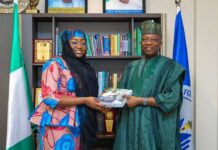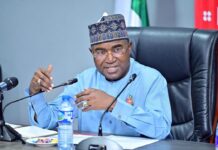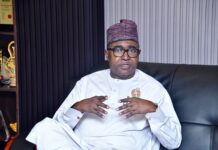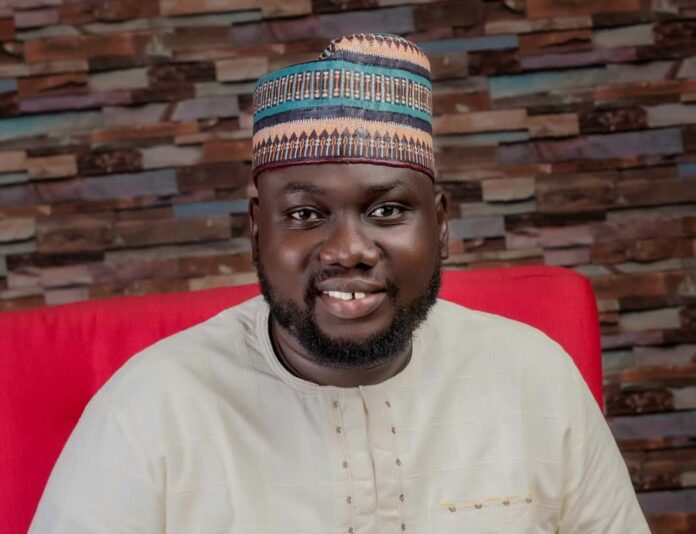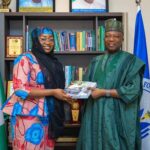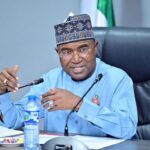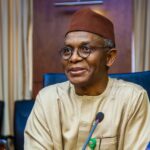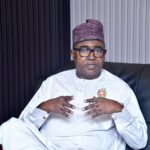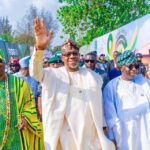Nigeria, often hailed as a nation with deep-rooted religious fervor, has long been known for its vibrant prayers and spiritual devotion. Places of worship adorn every corner, echoing with the sounds of supplications and chants. However, amid the fervent prayers lies a stark reality – a nation grappling with numerous socio-economic and political challenges, seemingly untouched by the collective faith of its people.
While prayer is an integral part of Nigerian culture and identity, there is a growing realization that it alone cannot solve the multifaceted problems plaguing the nation. Despite the countless hours spent in prayer gatherings, Nigeria continues to face issues such as corruption, poverty, insecurity, and a lack of basic infrastructure. The gap between spiritual faith and tangible action remains wide, raising questions about the efficacy of prayer in effecting meaningful change.
The question arises: why, in a nation so deeply devoted to prayer, do tangible solutions to these problems seem elusive? The answer lies in the dichotomy between faith and action. While prayer is undoubtedly a source of solace and hope for many Nigerians, it must be accompanied by proactive measures to address the root causes of societal ills. Mere supplication, without corresponding efforts to effect change, risks becoming an exercise in futility.
There is a need for a paradigm shift—a realization that prayer alone is not sufficient to catalyze transformation. Faith must be coupled with action, with individuals and communities actively engaging in efforts to promote justice, equality, and prosperity. This entails holding leaders accountable, advocating for policy reforms, and participating in grassroots initiatives aimed at uplifting the most vulnerable segments of society.
One of the most pressing issues facing Nigeria is corruption. Despite numerous anti-corruption initiatives and campaigns, graft remains pervasive at all levels of society, undermining development efforts and perpetuating inequality. While prayers for divine intervention are fervently offered, there is a need for concrete action, including robust institutional reforms, transparency, and accountability measures to combat this scourge.
Poverty is another formidable challenge confronting Nigeria. Despite being blessed with abundant natural resources, a significant portion of the population lives below the poverty line, lacking access to basic necessities such as food, clean water, and healthcare. While prayers for prosperity and abundance are common, they must be complemented by proactive measures aimed at poverty alleviation, including job creation, education, and social welfare programs.
Insecurity remains a constant threat to the nation’s stability and prosperity. From the insurgency in the northeast to communal conflicts and banditry in other regions, the security situation in Nigeria is precarious. While prayers for peace and security reverberate across the nation, they must be accompanied by concrete steps to address the root causes of violence, including poverty, marginalization, and lack of governance.
Moreover, Nigeria’s infrastructure deficit continues to hinder economic growth and development. From inadequate power supply to dilapidated roads and insufficient healthcare facilities, the lack of basic infrastructure undermines productivity and quality of life for millions of Nigerians. While prayers for divine intervention in infrastructure development are common, they must be supplemented by strategic investments, effective planning, and implementation of infrastructure projects.
To bridge the gap between prayer and action, Nigeria must harness the collective power of its faith communities to drive positive change. Religious leaders can play a pivotal role in mobilizing their followers towards concrete action, whether through community development projects, advocacy for good governance, or civic engagement initiatives.
Furthermore, there is a need for greater collaboration between religious and secular institutions, as well as civil society organizations, academia, and the private sector, to address the complex challenges facing the nation. By leveraging the resources, expertise, and networks of these diverse stakeholders, Nigeria can foster a culture of proactive engagement and collective responsibility for its development.
Ultimately, while prayer is a powerful force for inspiration, comfort, and spiritual renewal, it must be accompanied by tangible action to bring about lasting change. Nigeria’s journey towards prosperity, peace, and progress requires not only faith but also determination, innovation, and collaboration.
Nigeria’s potential for greatness is undeniable, but it can only be realized through a concerted effort that combines faith with action. Prayer alone cannot heal the deep-seated wounds afflicting the nation; it must be accompanied by tangible steps towards progress and development. As Nigerians continue to lift their voices in prayer, let them also commit themselves to the hard work of building a better, more prosperous future for generations to come. For it is through faith-inspired action that Nigeria will truly fulfill its promise as the “Giant of Africa.”
- Prince Adekunle Oyedepo, Founder of The Adekunle Oyedepo Foundation writes from the United Kingdom.






